BioMedEng25 had two invited plenary speakers who bookended the scientific programme and an additional four invited keynote speakers dotted throughout the programme. We have an unashamedly Scottish bias (although not entirely), showcasing some of the highlights of biomedical engineering research Scotland has to offer!
Plenary Speakers
We were pleased to announce the two plenary speakers for BioMedEng25 as being
- Professor Praminda Caleb-Solly, University off Nottingham, and
- Professor Keith Mathieson, University of Strathclyde.
Keynote Speakers
In addition to our Plenary speakers, we had four keynote speakers in the scientific programme. Our keynote speakers were:
- Prof. Jonathan Cooper, University of Glasgow
- Prof Maiwenn Kersaudy-Kerhoas, Heriot-Watt University
- Prof. Will Shu, University of Strathclyde
- Prof. Adriana Tavares, University of Edinburgh
Please see below for short biographies of all our invited speakers
Prof. Praminda Caleb-Solly

Professor Praminda Caleb-Solly specialises in assistive robotics and intelligent sensing. She is currently Professor of Embodied Intelligence at the University of Nottingham, where she leads the Cyber-physical Health and Assistive Robotics Technologies (CHART) research group.
She holds a BEng in Electronic Systems Engineering, an MSc in Biomedical Instrumentation Engineering, and a PhD in Interactive Evolutionary Computation. Prior to joining the University of Nottingham in September 2021, Professor Caleb-Solly was a Professor of Assistive Robotics and Intelligent Health Technologies at the Bristol Robotics Laboratory, University of the West of England (UWE), where she led the Robotics Engineering and Computing for Health Research Group and served as Associate Head of Department for Research and Scholarship.
From 2014 to 2018, she was Head of Electronics and Computer Systems at Designability, a not-for-profit organisation specialising in assistive technology design. Her research portfolio includes projects funded by Innovate UK, EPSRC, NIHR, AHRC, and the European Commission, focusing on the design and evaluation of socially and physically assistive robotics, and Internet of Things (IoT) sensor-based intelligent technology. Her work aims to assist people with disabilities and long-term conditions, as well as their caregivers, by supporting activities of daily living.
Professor Caleb-Solly is also the Academic Lead for the University of Nottingham at the National Rehabilitation Centre (NRC), contributing her expertise to advance rehabilitation research and innovation. Additionally, she co-founder and director of Robotics for Good, a Community Interest Company dedicated to deploying intelligent robotics and smart technology solutions that empower individuals in their daily lives.
Her academic contributions encompass machine learning and human-robot interaction, and she has co-authored the UK-Robotics and Autonomous Systems White Paper on Robotics in Social Care. She has also provided evidence to the UK House of Lords’ Science and Technology Committee inquiry into Ageing: Science, Technology, and Healthy Living. Furthermore, Professor Caleb-Solly serves as a member of the British Standards Institute’s Technical Committees on Robotics and Ethics for Robots and Autonomous Systems, and co-chairs the IEEE Robotics and Automation Society Technical Committee for Robot Ethics.
Prof. Keith Mathieson

Professor Keith Mathieson is a distinguished physicist specialising in neural interfaces and neurophotonics. Earning his BSc and PhD degrees in Physics from the University of Glasgow in 1997 and 2001, he was elected a Fellow of the Royal Society of Edinburgh in 2024.
He holds a Royal Academy of Engineering Chair in Emerging Technologies at the University of Strathclyde, a prestigious 10-year appointment extending until 2029. His research centres on developing advanced brain-interfacing technologies, working with neuroscientists to further our understanding of neural circuits and their alterations due to neurological disorders. This has led to systems that can help restore function. In particular, he has been working on retinal implant technologies to restore vision to patients with degenerative retinal conditions. His publication record includes pioneering work on photovoltaic retinal prostheses and optogenetic control using high-density neural probes.
Professor Mathieson recently formed the Strathclyde Neurotechnology Centre, a pioneering centre drawing together engineers, physicists, neuroscientists and AI specialists focussed on developing advanced neural interface technology. This has been supported by funding from the Royal Academy of Engineering, the Wolfson Foundation and alumni donors.
Prof. Jonathan Cooper
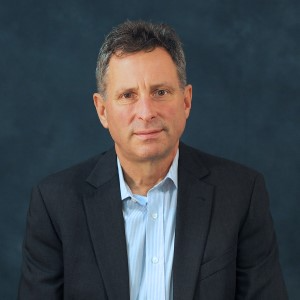
Professor Jonathan Mark Cooper, FREng, FRSE, holds the Wolfson Chair of Bioengineering at the University of Glasgow and is renowned for his contributions to biomedical diagnostics and microfluidics, with a track record of spin-out and translation into industry including for example Scotetch and Nebuflow Ltd.
One aspect of his current work focusses on aspects of community based diagnostics and digital health using blockchain secure connected mobile phone based platforms with an AI decision support tools to enable healthcare workers and government ministries to monitor the prevalence of infectious disease in remote rural village communities in East Africa. More recently, working with Google, these same systems have been adapted and used in urban settings in Africa, combining meteorological and pollution data, with electronic health records to explore the impact of our changing climate on non-communicable diseases such as asthma, COPD, cardiovascular disease and mental health.
In recognition of his contributions to engineering and science, Professor Cooper was elected a Fellow of the Royal Society of Edinburgh in 2001 and a Fellow of the Royal Academy of Engineering in 2004.
Prof. Maïwenn Kersaudy-Kerhoas
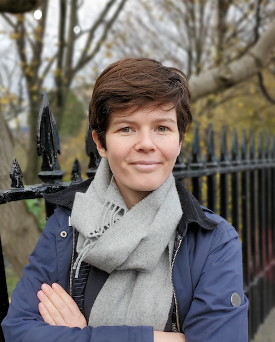
Professor Maïwenn Kersaudy-Kerhoas is a distinguished expert in microfluidic engineering, currently serving as a Full Professor at Heriot-Watt University’s Institute of Biological Chemistry, Biophysics and Bioengineering in Edinburgh. She also holds an honorary fellowship in Infection Medicine at the University of Edinburgh.
Her research focuses on developing innovative microfluidic tools for rapid sample preparation, particularly in the extraction of circulating nucleic acids (cfDNA, RNA, miRNA) for applications in non-invasive prenatal testing, cancer diagnostics, and infectious disease detection. She emphasizes sustainable, cost-effective manufacturing processes for polymer-based microfluidic components, aiming to replace petroleum-derived products with renewable alternatives.
In 2013, Professor Kersaudy-Kerhoas was awarded a five-year Royal Academy of Engineering Research Fellowship to advance microfluidic systems for prenatal diagnostics. She later secured a £1.3 million EPSRC Healthcare Technology Challenge Award to develop total pre-analytical systems for cfDNA extraction at the point-of-need. This led to the creation of CNASafe, an automated platform and patented fluidic cartridge for cfDNA extraction, currently under clinical pilot for identifying sepsis-causing pathogens.
Prof. Will Shu
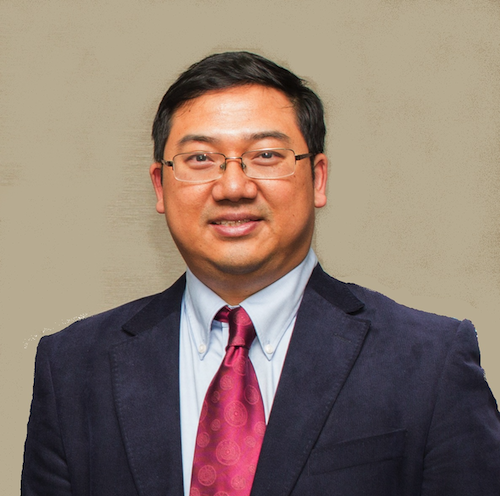
Professor Will Shu is a leading figure in biomedical engineering, currently serving as the Hay Chair in Biomedical Engineering and Director of Research in the Department of Biomedical Engineering at the University of Strathclyde in Glasgow. He earned his PhD in Electrical Engineering and Nanoscience from the University of Cambridge, where he also completed postdoctoral research. Prior to joining Strathclyde, he held academic positions at Heriot-Watt University, advancing from Lecturer to Reader in Biomedical Microengineering between 2007 and 2016.
Professor Shu’s research focuses on 3D biofabrication, bioprinting, biosensors, and microsystems, with applications in regenerative medicine. He led pioneering work demonstrating the first bioprinting of human embryonic and induced pluripotent stem cells, contributing to the development of animal-free drug testing and 3D-printed organs.
In 2024, his team introduced the PRINCESS method (PRINting Cell Embedded Sacrificial Strategy), enabling the creation of microvasculature structures as small as 70 micrometres using DNA hydrogel biolubricants. This innovation holds promise for reducing animal testing by providing more accurate human tissue models for drug screening.
Beyond academia, Professor Shu is the founder and director of OrganLike, a company developing 3D-printed human tissue models for surgical training and research. He has held a visiting position at Stanford University and is an emeritus member of the Royal Society of Edinburgh’s Young Academy. His professional contributions include serving on the editorial board of the IOP Biofabrication Journal and as a board director of the International Society for Biofabrication.
Prof Adriana Tavares
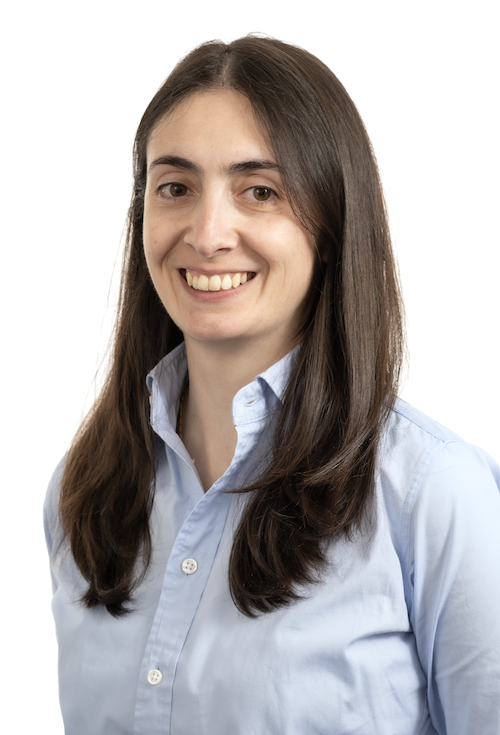
Professor Adriana Tavares is a leading expert in translational molecular imaging at the University of Edinburgh, where she holds a Personal Chair in the Deanery of Clinical Sciences. She also serves as the Head of the Preclinical PET Facility within the Centre for Cardiovascular Science and is affiliated with Edinburgh Imaging.
Her research focuses on the development of novel PET radiotracers and advanced image analysis techniques to enhance disease diagnosis, prognosis, and treatment monitoring. Her team is particularly engaged in creating molecular imaging biomarkers and kinetic modeling tools for whole-body PET studies.
At the University of Edinburgh, she established the “PET is Wonderful” initiative, aimed at fostering collaboration and innovation in PET imaging research. She is an active member of the European Society of Molecular Imaging (ESMI) and co-chairs its STANDARD group. Additionally, she contributes to the Scottish Imaging Network: A Platform for Scientific Excellence (SINAPSE) and co-leads the UK PET Network’s preclinical subgroup.
Professor Tavares has secured significant research funding, including a £1.93 million MRC award for developing the TSPO PET radiotracer [18F]LW223, aimed at detecting regional tissue inflammation. Her extensive publication record and leadership in the field underscore her commitment to advancing molecular imaging technologies for improved healthcare outcomes.
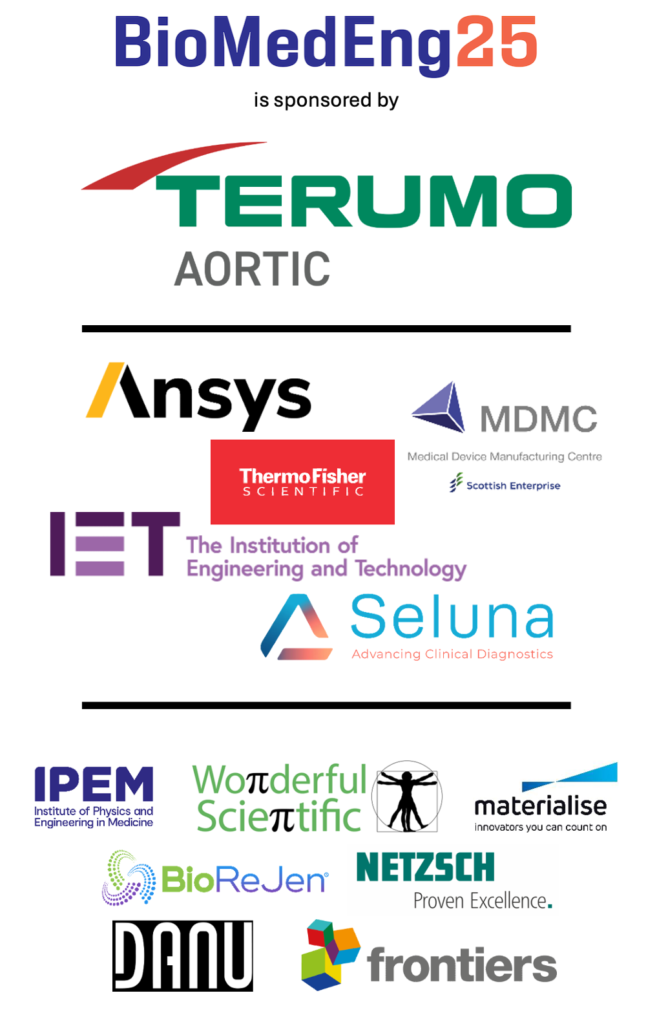

4th – 5th September 2025